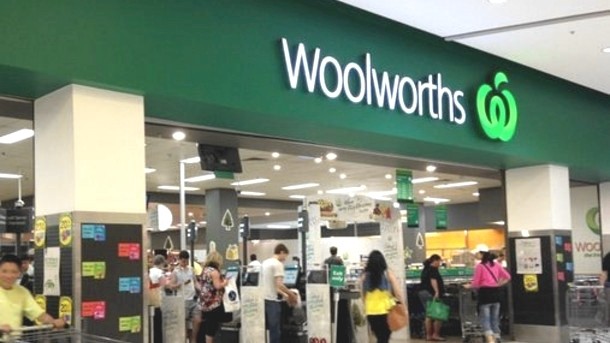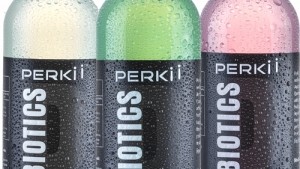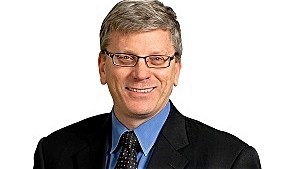This week Down Under
Woolworths repeats ‘Mind the Gap’ demand while drawing heat from ACCC

Last week, media reports suggest Woolworths demanded a set of payments from suppliers in an apparent repeat of a programme last year that has led the Australian Competition and Consumer Commission to institute proceedings against it in the Federal Court this month.
The ACCC alleges that Woolworths had been seeking to urgently reduce what it anticipated would be a substantial profit shortfall by demanding payments from suppliers in its management-backed “Mind the Gap” programme.
“The ACCC alleges that, in accordance with the Mind the Gap scheme, Woolworths’s category managers and buyers contacted a large number of the Tier B suppliers and asked for payments from those suppliers for amounts which included payments that ranged from A$4,291 to A$1.4m [US$3,100-1m], to ‘support’ Woolworths.
“Not agreeing to a payment would be seen as not ‘supporting’ Woolworths,” the watchdog said in a statement. It claimed that Woolworths sought approximately A$60.2m from 821 suppliers through the scheme and ultimately netted A$18.1m.
Speaking to Fairfax Media this week, one supplier said the supermarket was asking for payments in what appeared to be a repeat of Mind the Gap.
"Even with the Australian Competition and Consumer Commission announcement a few days ago, we are getting [Woolworths] buyers saying 'because this happened 12 months ago we need to cycle those payments'. And by cycle those payments they mean, we got that money last year, we need it again this year," said the supplier on condition of anonymity.
Woolworths has said it has fully cooperated with the ACCC’s investigation over the last year and believed its conduct was “consistent with Australian and international industry practice to engage regularly with suppliers over product and category performance”.
Fairfax has reported that the supermarket chain is unapologetic for seeking compensation from suppliers in situations such as when product sales exceeded expectations.
Quoting a market analyst, the Sydney Morning Herald reported that Woolworths considered asking suppliers to make payments to compensate for the underperformance of a product as standard practice in the industry.
The source added that the only reason why Mind The Gap had attracted the watchdog’s attention was that Woolworths had approached a number of suppliers at the same time.
However, ACCC chairman Rod Sims believes Woolworths has a case to answer.
“The ACCC alleges that Woolworths’ conduct in requesting the Mind the Gap payments was unconscionable in all the circumstances,” he said.
“A common concern raised by suppliers relates to arbitrary claims for payments outside of trading terms by major supermarket retailers. It is difficult for suppliers to plan and budget for the operation of their businesses if they are subject to such ad hoc requests.”
The ACCC said the Mind the Gap scheme first came to its attention around the time when there was considerable publicity about the impending resolution of its proceedings against Coles. Coles’s conduct, the watchdog says, was similar to what it alleges Woolworths has been engaged in with its suppliers.
Coles settled with the ACCC after months of legal fighting and accepted a A$10m fine. It also repaid suppliers A$12m through the work of an independent arbiter.
“Of course, the allegations against Woolworths are separate and distinct from the Coles case,” Sims added
The ACCC is seeking injunctions, including an order requiring the full refund of the amounts paid by suppliers under the scheme, a pecuniary penalty, a declaration, and costs.
A first hearing is set for February 1.
More stories from Down Under…
Australia’s cattle methane emissions figure downsized by 24%
New data analysis has found that cattle methane emissions in Australia are 24% lower than had been previously estimated—equivalent to 12.6m tonnes of carbon dioxide a year.
The finding by Csiro, Australia’s government research network, has led to the National Greenhouse Gas Inventory being updated.
It follows research by scientists and officials across Australia based on data collected over eight years that looked into ways to reduce methane emissions in livestock as part of Meat and Livestock Australia's methane abatement research programmes.
The new methodology also brings the inventory in line with the estimates of the Intergovernmental Panel on Climate Change, the leading international body on the assessment of climate change, which was established by the United Nations Environment Programme and the World Meteorological Organisation in 1988.
Csiro's Ed Charmley said the survey was conducted because of concerns about the large differential between the government emission figures and those published by the IPCC for Australian cattle.
Doubt surrounded the accuracy of previous calculation methodologies used for cattle, and northern Australian cattle in particular, which were over-estimated, he said.
"Different methods used to calculate emissions from livestock in temperate and tropical regions were based on studies done in the 1960s and 1990s, mainly with dairy cattle," Dr Charmley explained.
"The revised method, which is based on improved ways of estimating ruminant methane emissions from forage-fed beef and dairy cattle in temperate or tropical regions has been tested against international defaults provided by the IPCC and found to give consistent methane yields."
MLA’s Matthew McDonagh said the new research provided an accurate dataset: "This revelation clearly shows livestock-based emissions are nowhere near what they were thought to be and will help improve the accuracy of Australia's national greenhouse gas emissions estimates.
"This is positive news for the Australian livestock sector as it seeks to continually improve its production efficiencies and demonstrate its environmental credentials."
Tom Davison, a sustainability manager at the industry-owned livestock advocacy, said the findings also illustrated a number of simple management measures producers could implement to substantially reduce methane emissions while increasing productivity.
"Some of these are as simple as integrating leucaena into grazing systems, improving growth rates or herd reproductive performance, while other future techniques may include feeding red-algae to livestock and have been prioritised for further research," said Dr Davison.
"We look forward to continuing to make further gains in this field for the mutual benefit of both our livestock industries and environmental sustainability.”
Zero-alcohol beer could soon be moved from Kiwi soft drinks aisles
New Zealand’s grocers have welcomed a bill that will allow zero-alcohol and very low alcohol beers to be sold alongside full-strength beers in supermarkets.
Introduced in Parliament last week, The Sale and Supply of Alcohol (Display of Low-alcohol Beverages and Other Remedial Matters) Amendment Bill 2015 will get its first reading in 2016.
Food & Grocery Council chief executive Katherine Rich said she was pleased the government had moved to address what was an anomalous situation, whereby zero-alcohol beers could only be stocked on soft-drinks aisles.
“I’m glad to see common sense has prevailed and this unintended consequence can be corrected in the law.
“It doesn’t make sense that these products can’t be put next to other beer when everyone wants to provide options and promote responsible drinking,” Rich said.
Start-up incorporates microgel technology in probiotic drink
A Queensland start-up is testing the market for a non-dairy, low-kilojoule probiotic in selected stores in Brisbane and the Gold Coast.
ProGel’s Perkii juice and water drink is based on technology developed by Queensland University’s Bhesh Bhandari to encapsulate bacteria in microgels that keep them alive in drinks and stomach acid.
Perkii is available in three flavours, with each bottle containing 1bn live Lacobacillus case bacteria. At 109 kilojoules per bottle, the company says the live probiotics in Perkii can help consumers control weight, improve gut health and boost immunity.
Pejnovic named CMA president
The chief executive of Lipa Pharmaceuticals has been named president of the Australian complementary industry’s representative body.
Dusko Pejnovic, who has been on the board of Complementary Medicines Australia since 2008, replaces Richard Henfrey, who now takes the role of vice-president.
“Dusko’s knowledge of the industry is invaluable, as is his vision for the development of the complementary medicines sector and its recognition as a vital component of the Australian healthcare landscape,” said Carl Gibson, chief executive of CMA.
“We thank Richard for his valuable contribution to the industry during his tenure as President and are delighted that he will remain an active member of the board.”
Chant joins Aker Biomarine
Krill oil producer Aker Biomarine has named Ian Chant as its general manager for Australia to oversee sales and business development in the region.
Chant, a natural health veteran, has previously held various positions in laboratory, production management, sales and general management.
Until recently, he recently ran a management consultancy and lectured in universities and on leadership development programmes.
A board member of Complementary Medicines Australia, Chant is also involved in the Omega-3 Centre.












